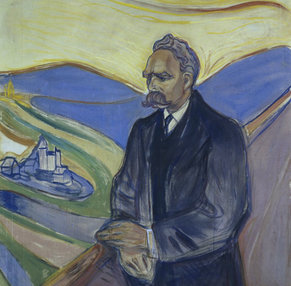
Philosophy
Materialism is the philosophy that everything in life is physical such that existence is dictated by physical realities. This is the opposite of the philosophy of idealism that views existence as mentally or spiritually constructed. Between these two extremes is pragmatism that views some things as physical such as a door and other things as intangible such as an idea.Science
Materialism is associated with idea that the world is a machine that can be fully explained and predicted starting at the atomic level. This view was quite common amongst the scientific community in the 19th century before advancements in quantum physics made it clear that small particles aren't a deterministic machine but are rather a paradoxical world that is better explained by chaos theory and the laws of chance.Medicalization
Medicalization is the process by which a problem that was once viewed as spiritual, behavioral or social becomes viewed as a medical problem with physical causes.History
A materialist approach to history dismisses the role of ideas and knowledge in historical change and instead explains things in terms of physical realities such as production or climate.Status Symbols
Status symbols are things that represent social traits such as wealth, coolness or intelligence. Where social status is usually a social process whereby individuals earn respect from others through social interaction, status symbols are an attempt to signal social status with a material possession. For example, a commuter who brings an intelligent book on the train in the morning to signal that he or she is intelligent to fellow passengers.Wealth
Materialism is traditionally associated with the pursuit of wealth as this was considered a physical thing. This takes on interesting dimensions due to the process of dematerialization whereby wealth is increasingly non-physical. For example, knowledge, talent, intellectual property, digital money, digital property, digital environments, digital media and software are all non-physical things that are an increasingly large component of wealth. In this context, materialists may take on a different role such as arguing that much of the wealth of the world is valueless because it isn't physical.Commoditization of Experience
Materialism is associated with attempts to find happiness and self-fulfillment in products and services. In this view, happiness is sold on markets as packaged products, services and experiences such that it can simply be purchased. This can be contrasted with the view that happiness is completely intangible such that it is earned through positive behaviors such as discipline, introspection and kindness.Commoditization of Identity
The commoditization of identity is when a person views a brand identity as an element of their own identity such that they view consumption as a self-fulfilling experience that expresses who they are as a person. This is viewed as materialist because it is the use of a physical thing, i.e. a product, to fix intangible problems, e.g. "I want to be admired."| Overview: Materialism | ||
Type | ||
Definition (1) | The philosophy that only physical matter exists such that all intangible things can be explained by physical processes. | |
Definition (2) | A value system that prioritizes the attainment of physical things such as products over intangible things such as knowledge, relationships, culture, community, responsibilities, character, spirituality and the human experience. | |
Related Concepts | ||































